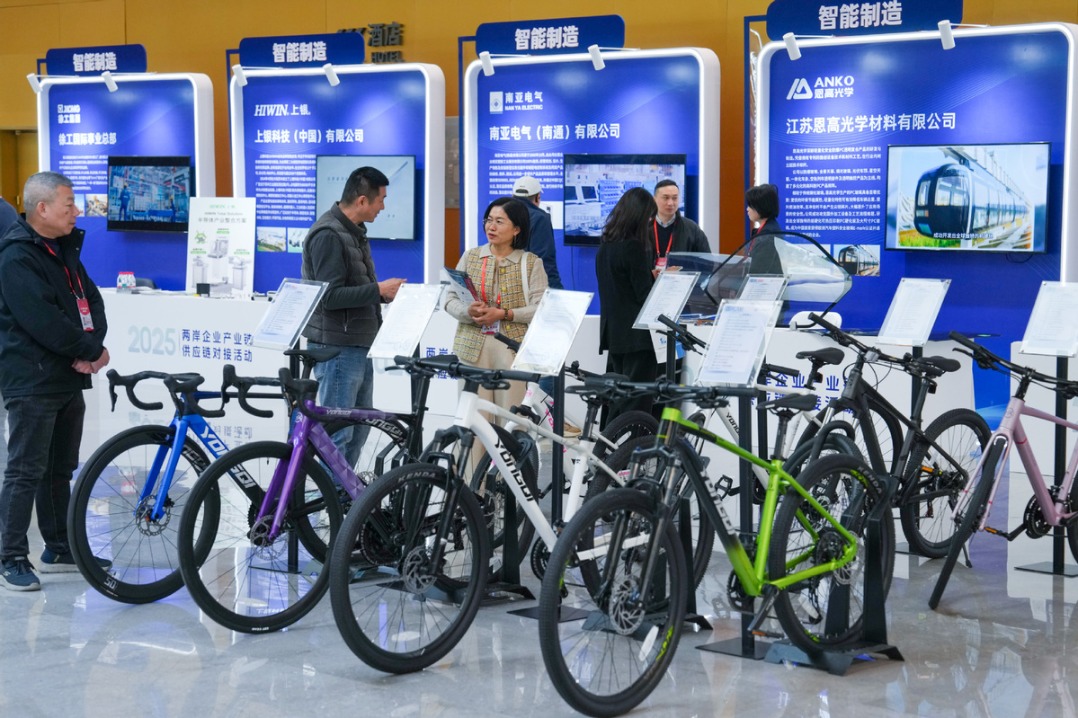Steady growth expected for China in 2018: observers
By Paul Welitzkin in New York | China Daily USA | Updated: 2018-01-10 23:56
China's economy will continue a steady growth rate in 2018 while the property market could be a potential trouble spot, according to speakers at a conference in New York on Tuesday.
Qin Xiao, former chairman of China Merchants Group and member of the Hong Kong Financial Services Development Council and Xu Gao, chief economist at China Everbright Securities Co Ltd, said that they expect China's economy to grow at about 6.7 percent this year, down slightly from the expected 6.8 percent in 2017. They made their comments at an event sponsored by the National Committee on US-China Relations.
Qin identified a high macro debt ratio, overcapacity in certain industries and a possible housing bubble as potential risks for the mainland economy this year. Xu also cited the property market as a concern. "The property market has been one of the main drivers for the economy in the past two years," he said.
Speakers also focused on asset allocation in China, which differs from the US market-driven approach. Nicholas Lardy, of the Washington-based Peterson Institute for International Economics, pointed out that about 40 percent of state-owned companies (SOEs) aren't able to cover their costs. He said state companies have surged and credit has flown disproportionally to those companies at the expense of the private sector.
Huang Haizhou, managing director at China International Capital Corp, said China's economy is moving away from the SOE model. "If you look at (the) new economy, (it's) not so much about SOEs. The most valuable companies in China now are Alibaba and Tencent. Those companies are successful because they list on the stock exchange."
Gao said that the Chinese government has to strike a delicate balance between the demands of reform and growth. "China's modernization over the last 40 years has proven that piecemeal reform is best," he said.
The Trump administration uses the steel industry as an example of why China must work harder to reform its economy, saying that government subsidies to SOEs and over capacity is hurting the US steel industry.
Lu Feng, a professor at Peking University, said steel production has been declining in China in the past two or three years. "I don't think over capacity is a problem. There has been a lot of restructuring in steel," he said.
"China is a low cost steel producer," said Lardy. "They are modernizing and investing in product quality. There has been almost no investment in the US steel industry for at least a decade. This is not an industry that the US can compete in," he said.
Justin Yifu Lin, also an economics professor at Peking University and a former chief economist at the World Bank, discussed what he called "China's New Era".
Although China has grown tremendously over the last 30 years, Lin said the country will continue to maintain a steady rate of economic growth for many more years.
"I think China can achieve 6 percent growth from now until the 2030s," he said. He noted that economic growth reached 9.6 percent per year for more than 30 years. "Russia collapsed, but China adopted a pragmatic transition approach," Lin said.
Aaron Hagstrom contributed to this story.
paulwelitzkin@chinadailyusa.com
























